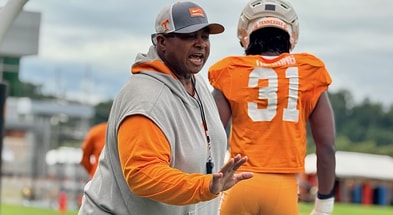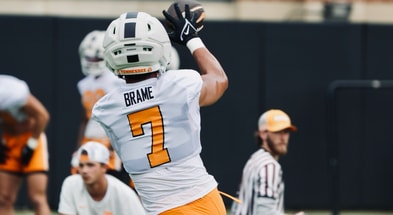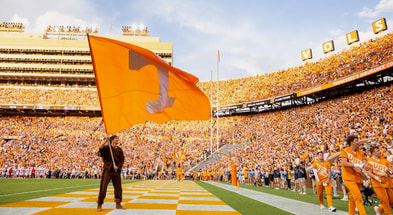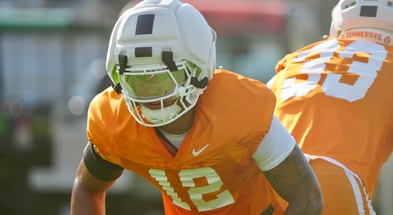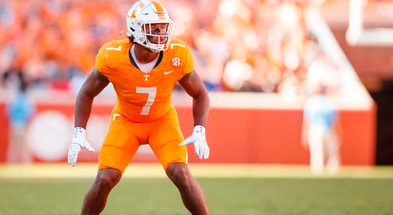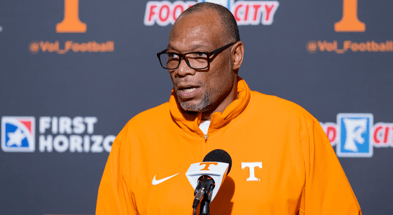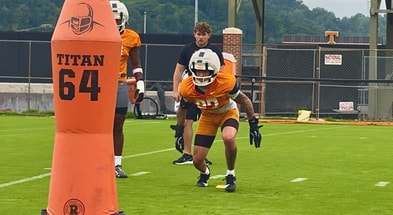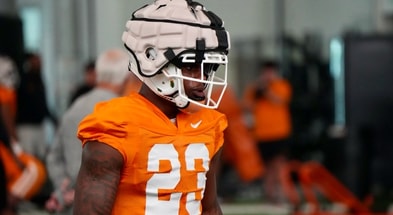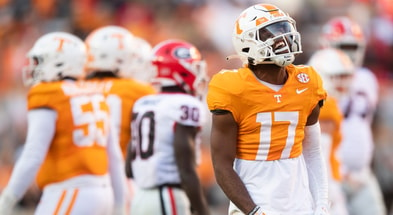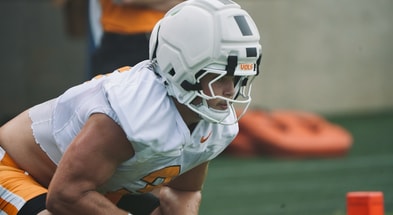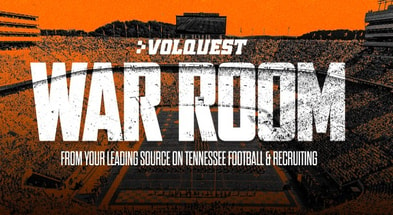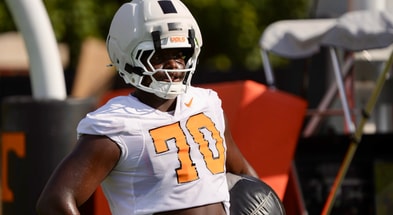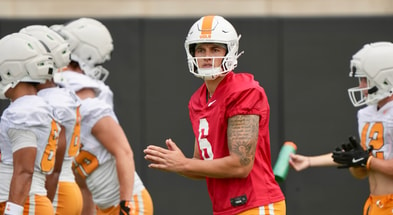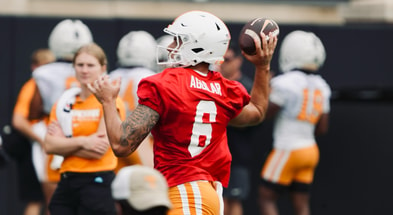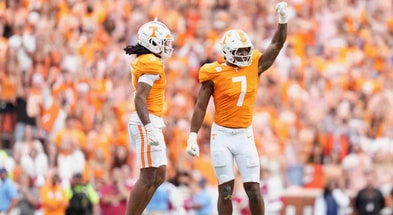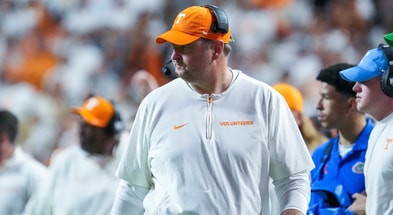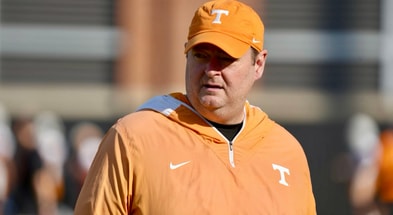What NCAA Committee on Infractions rep Kay Norton said on Tennessee's punishment
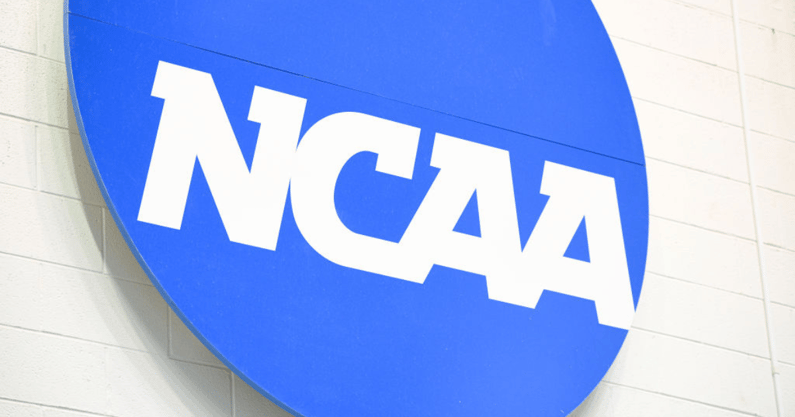
Tennessee received its final rulings from the NCAA Committee on Infractions Friday morning, concluding a 30-month long ordeal into the Jeremy Pruitt era in Knoxville. The Vols will not receive a postseason bowl ban but have been charged a fine of $8 million with several recruiting restrictions moving forward over the course of a five-year probation period.
Volquest detailed the entirety of the punishments for Tennessee earlier today. A full breakdown from the NCAA can be found here.
Kay Norton, chief hearing officer for the NCAA Committee on Infractions and president emerita at Northern Colorado, took time to explain the panels findings on Friday while answering some questions from the media.
Below is a written transcript of the brief zoom conference with key answers.
Kay Norton Opening Statement
“Thank you, and welcome everyone. The Committee on Infractions decision details the findings and penalties, in this case. My comments today are intended to briefly summarize our findings and address your questions.
The decision which contains the full details of the case stands on its own merits. The violations in this case which were egregious and expansive, occurred within the football program at Tennessee over the course of three football seasons. In total, the program committed eighteen level-one violations, including more than 200 individual violations. The program mostly violated recruiting rules and provided impermissible inducements and benefits in the form of direct payments to prospects, enrolled student-athletes, and their families. Additionally, four former football staff members committed level one unethical conduct violations during the investigation in this case, following their separation from Tennessee violations. The sum of these violations makes it one of the largest cases this committed has ever adjudicated.
The majority of the violations occurred as part of recruiting scheme, in which the football program consistently and impermissibly paid in cash to cover expenses for prospects during unofficial visits. The details and scope of that scheme are described in more detail in the news release and the decision. In at least one case, one of these paid-for unofficial visits was offered to a recruit who later committed to Tennessee to prevent him from taking a visit to a different school. Visits to college campuses are crucial for students as they determine where to go to school, so an inducement to prevent the prospect from exploring his options was also a disservice to that prospect.
There are also several cases, in which after they enrolled at Tennessee, student-athletes and their families continue to receive cash and other impermissible benefits from coaches. Combined with the inducements offered in the recruiting scheme, these impermissible benefits totaled nearly $60,000. As a result, a total of 16 student-athletes competed in 151 games, while ineligible including three student-athletes who competed in a bowl game while ineligible.
The members of the football staff who engaged in these activities, knowingly and intentionally, violated long-standing NCAA rules, which were implemented by member schools to establish fairness in college sports. Because they intentionally broke fundamental NCAA rules, and in many cases worked to conceal those activities from school compliance staff, the parties in this case also violated ethical conduct rules.
Furthermore, due to his personal involvement in several violations, and his failure to monitor his staff, the former Head coach violated Head Coach responsibility rules. The committee was particularly troubled by the culture in the football program. The compliance environment within this program for several years was demonstratively contrary to everything this association expects from member schools. Young staff members, from whom their first experience in college sports was within this program, were exposed to intentional rule-breaking and a culture toxic enough that they expressed hesitancy about coming forth out of fear over violations.
Finally, the panel determined Tennessee failed to monitor its football program. Effective compliance is a shared responsibility. The conduct in this case demonstrates the football program did not share the school’s adherence to compliance. And, in fact, members were intentionally non-compliant. While the school devoted significant resources to its education and monitoring efforts, it did not follow through in effectively detecting violations when they occurred, despite violations occurring with this frequency and magnitude, and longevity. A compliance program can do everything right on paper but a school and compliance program can fall short in actually living up to a culture of compliance. The panel does commend, however, the school’s cooperation after the violations were reported to the school’s Chancellor. Tennessee demonstrated a set of behaviors that rise above a school’s already high set of obligations throughout this process.
Top 10
- 1New
Top 25 College QBs
Ranking best '25 signal callers
- 2
Top 25 Defensive Lines
Ranking the best for 2025
- 3
Big Ten Football
Predicting 1st loss for each team
- 4Hot
College Football Playoff
Ranking Top 32 teams for 2025
- 5Trending
Tim Brando
Ranks Top 15 CFB teams for 2025
Get the Daily On3 Newsletter in your inbox every morning
By clicking "Subscribe to Newsletter", I agree to On3's Privacy Notice, Terms, and use of my personal information described therein.
To be clear, this panel does not believe exemplary cooperation proves an example of compliance, but it is a potential signal of a school’s intent to do better moving forward.
Today’s decision preserves the opportunity for student-athletes who were not in the wrongdoing to participate at the highest level and in the post-season. To be clear, however, the penalties the panel has prescribed in this case are significant. The financial penalty, in particular, is exponentially larger than any financial penalty levied by the Committee on Infractions. It is directly tied to anticipated revenue sharing in this school’s conference. The panel also prescribed substantial recruiting penalties and show-cause orders that hold the individuals involved in wrongdoing accountable.”
Q&A with the media
On the recruiting penalties affecting a staff that was not currently employed at the University at the time…
“Being an infractions case, we are always to a certain extent looking back at behavior that has already occurred. Particularly because these violations were directly related to recruiting and demonstrated an unwillingness to pretend to follow the rules, the NCAA is concerned with protecting the student-athlete but not necessarily with the restrictions of recruiters going forward. By the way, the institution had self-imposed these penalties. They were discussed at length between enforcement and the institution, and we determined at the COI they were appropriate.”
Had Tennessee not cooperated to the extent they did, how would the penalties have been different…
“The issue of the effective exemplary cooperation simply would not have been on the table at all. So, in determining the level of the case, it would have been clearly standard as we did find everything aggravated, and that would have called the post-season ban into play as a core penalty. The discussions that are ongoing now about whether should there be any change about what the rules are; the membership is engaging in; spending a lot of time thinking about effective exemplary cooperation, but there has been no discussion about changing any of the rules if it is not present.”
On Jeremy Pruitt show cause and 100 percent suspension…
“We always look at previous cases that are somewhat similar, although, no cases are identical. The six years fell within the range of Level I aggravated Head Coach Responsibility penalties that we have imposed in the past.
One of the principles the association adopted in April and going forward included emphasizing individual responsibility and liability. So, the COI has made some recommendations about how suspensions ought to be done in a consistent manner going forward, and one of those things was to specify one hundred percent suspension. Given the egregious nature of these violations and the ambiguity that may have been created in the past by suspending a coach for all of the game days but not all of the days leading up to it and after. We wanted to be clear about what the effect of the show cause would be.”
